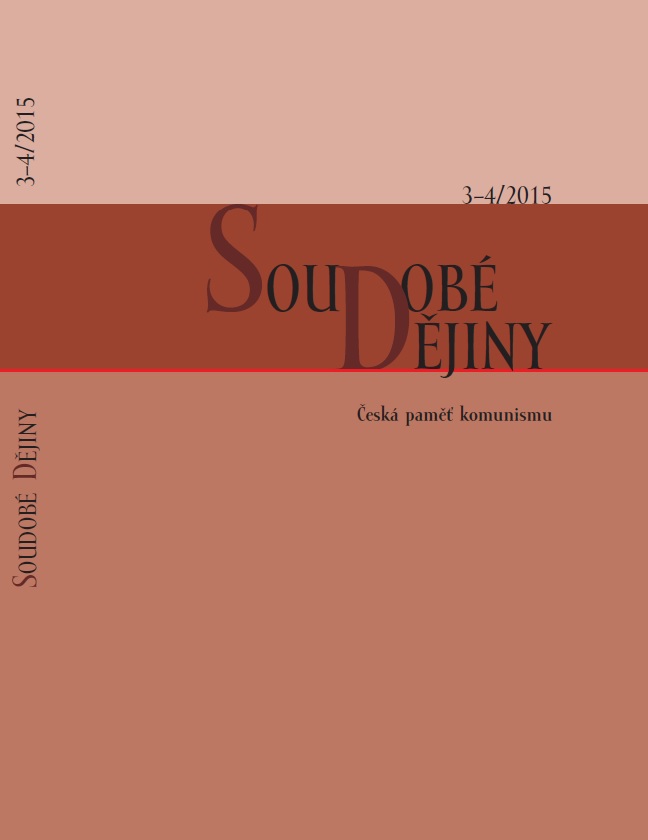Teror, selhání, odboj
Terror, Failure, Resistance
Conflicting Memories of Armed Resistance to Communism
Author(s): Markéta DevátáSubject(s): Political history, History of Communism
Published by: AV ČR - Akademie věd České republiky - Ústav pro soudobé dějiny
Keywords: Communism;anti-communist resistance;Czechoslovakia;armed forces;Babice;
Summary/Abstract: This article is concerned with the memory and commemoration of acts of armed force which were committed as part of the civilian resistance to the Communist régime in its ‘founding period’ after February 1948. It focuses on how memory is constituted around this minority form of anti-Communist resistance, particularly by means of memorial sites in the process of their formation in the period before the Changes that began in mid-November 1989 and also afterwards. In the fi rst part of the article, the author looks at armed confl icts at the edge of the Iron Curtain, that is, on the western borders of Communist Czechoslovakia. She seeks to demonstrate that the way of looking at border crossings by people fl eeing to the West is still considerably infl uenced by the memory and commemorative activities of veterans of the former border guards, amongst whom dominates the image of these refugees as internal enemies of the State. The second part of the article is devoted to instances of so-called ‘political murder’, that is, acts of violence against Communist politicians, which are connected particularly with villages. Most of these stories are gradually being forgotten; society does not want to recall them. An exception, however, is the memory of the sad events in the village of Babice, in the Bohemian-Moravian uplands, in 1951, which has repeatedly been used by politicians. In the third part of the article, the author considers the social discourse about the ethical dimension of armed anti-Communist resistance, which is almost exclusively focused on the atypical case of the group led by the Mašín brothers, and the process of forming the memory of the three resistances (the fi rst, against Austria-Hungary during the Great War; the second, against the German occupying forces during the Second World War; and the third, against the Communist régime during the Cold War). She describes the commemorative activities of the Confederation of Political Prisoners as part of the strategy to bolster the social standing of the third, anti-Communist resistance, and she points to certain analogies between the unchallenged memories of political prisoners and the memories of the former border guards in contemporary historiography
Journal: Soudobé Dějiny
- Issue Year: XXII/2015
- Issue No: 3-4
- Page Range: 398-439
- Page Count: 42
- Language: Czech

